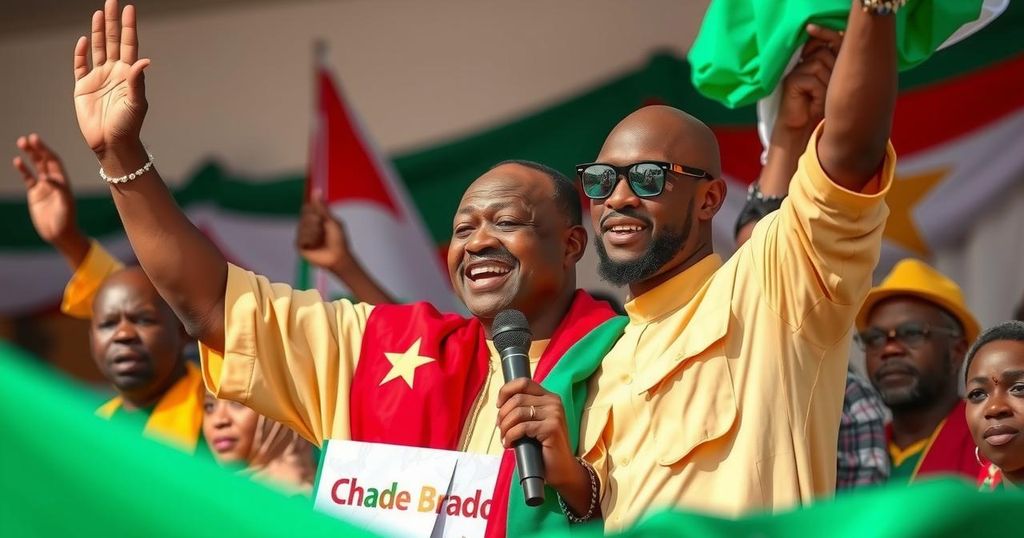Chad’s Ruling Party Claims Majority Amid Opposition Boycott in Elections

Chad’s ruling Patriotic Salvation Movement has secured a majority in parliamentary elections boycotted by opposition parties. The election results are presented as a step toward democracy by President Mahamat Idriss Deby, despite claims of a lack of transparency. Deby, who took power in 2021 after the death of his father, has recently shifted military alliances, signaling changing geopolitical ties in the region.
Results from Chad’s parliamentary elections last month confirm that the ruling Patriotic Salvation Movement (MPS), led by President Mahamat Idriss Deby, has achieved a parliamentary majority. Despite the election being boycotted by several opposition parties, the Deby administration has portrayed these results as a pivotal step towards democratization. According to the National Elections Management Agency, MPS secured 124 out of 188 National Assembly seats with a voter participation rate of 51.56%. While 38 political entities are set to be represented, the exact allocation of non-MPS seats remains unclear. Opposition groups, particularly the Transformateurs Party led by Succes Masra, criticized the election process, claiming it lacked transparency, a point the government has disputed. Deby has been at the helm since 2021, following the death of his father, who had governed for 30 years. Under his leadership, Chad has distanced itself from traditional allies, notably severing military ties with France, reflective of a broader regional trend. Recently, Chad has reported thwarting an attack it describes as an attempt to destabilize the presidency.
The current political situation in Chad emerged following a period of upheaval in 2021, when President Mahamat Idriss Deby declared himself interim leader after his father was killed during a conflict with insurgents. This transition has sparked discussions regarding the legitimacy of the electoral process, particularly as multiple opposition factions have voiced skepticism over the transparency and fairness of the elections. The MPS’s majority win occurs against a backdrop of shifting alliances in the Sahel region, as several nations reposition their ties with former colonial powers. The growing influence of Russia and the diminishing role of France are significant factors in the evolving geopolitical landscape of the area.
In summary, Chad’s ruling MPS has won a decisive majority in a parliamentary election marred by opposition boycotts. While the government claims this election signifies a transition toward democracy, opposition leaders express concerns regarding the legitimacy of the electoral process. President Deby’s administration is navigating increasingly complex regional dynamics, distancing itself from France and asserting its position against perceived threats to national stability. The results of this election may herald ongoing political tensions as non-MPS parties seek to assert their influence in a challenging political environment.
Original Source: www.dw.com







